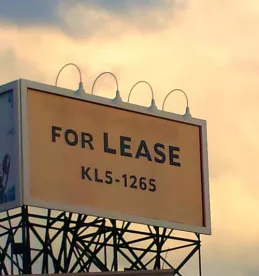Q: A tenant has just advised us that their employee has tested positive for the virus. What are our notice and disclosure obligations as real estate owners and managers?
A: This was by far our most popular question of the week. Although there is no “right” or “one size fits all” answer, we have developed a range of answers that respond to the variables that need to be evaluated and balances the risks. Building owners and managers must take into consideration their duty to safeguard tenants and occupants of the project, health-related confidentiality obligations (such as the ADA, OSHA and HIPAA), and their obligation to keep the building up and running so that tenants can continue business operations. Here is a compilation of best practices:
-
Be sure that all tenants know to notify building management immediately of a suspected or known COVID-19 diagnosis.
-
Establish, fine tune and implement a clear and consistent policy for responding to and addressing reports of a positive COVID-19 test.
-
Work closely with and stay in constant communication with the designated tenant representative (could be HR director, CEO, CFO or office manager) regarding their response to a positive employee test.
-
Ask the tenant representative to share their policy and steps they will take in response to the positive test and, unless there is a flaw in the plan (as discussed below), allow the tenant to proceed with their plan and keep you fully informed.
-
We do not believe that landlords/owners have an obligation to disclose suspected illnesses, only known positive tests for highly contagious conditions such as COVID-19. However, on a case by case basis the answer may be different if the potentially affected person has been in close contact with a number of people – in such event, common sense may dictate that potentially exposed persons be notified in advance.
-
Landlords do have an obligation to notify all other tenants and occupants of a building that a person who has entered the building has tested positive for the virus, and to let building occupants know what steps are being taken as a result of this finding. Ideally, this communication will be made with the involvement and consent of the affected person’s company, but if not, the duty remains. We can advise owners and managers on the form of notices to be sent in this situation.
-
In compliance with applicable laws and regulations, the name of the affected person should never be disclosed. However, it is permissible to notify other tenants and occupants of the building of the floor on which the affected tenant works. Such notification must be carefully crafted so as not to provide the affected person’s identity. Some landlords are also taking the step of notifying others of the locations of the project visited by an affected individual prior to testing positive (such as the coffee bar, dry cleaners, convenience store, etc.). This enables potentially exposed persons to seek testing if they so choose.
-
Deep clean and disinfect all common areas affected – common area restrooms, elevator lobbies, etc., and inform tenants and occupants of the steps taken and procedures going forward.
-
Work with the affected tenant/employer to insure that CDC protocols for quarantine and business shutdown are followed. Although this guidance is evolving, the best practice appears to be for the entire office in which the affected employee worked to close for 14 days and for all potentially exposed employees to self-quarantine during that period. There is also some support for a notification of all visitors to the office of the affected employee, but we again believe that this is a case by case analysis based on who the affected person may have come into contact with.
-
Whether another tenant with a separate office on the same floor as the affected tenant must close and follow self-quarantine is a case-by-case determination, which will depend on a number of factors (shared restrooms, elevators lobbies, etc.). In this case, the building manager or owner must work closely with the adjacent tenant and provide full disclosure (subject to confidentiality) so that the tenant can make the best decision for them and their employees, clients and visitors.
Q: If someone in my building tests positive for the virus do I need to close the Building entirely?
A: No, in most cases. Unless your building contains a significant amount of shared or meeting space, there is no need to close the entire building. We do recommend that open and shared spaces and amenities be closed until the virus threat has been resolved. This would include gyms, coffee bars, yoga rooms, meeting and conference centers and the like, unless you can prevent gatherings or allow tenants to use such areas for one-on-one instruction only, at the sole risk of the tenant (such as individual training or yoga, or use of conference facilities by individual tenant teams). We also suggest that the use of shared spaces and amenities be conditioned upon the tenants (or individual employee users) signing waivers accepting the risk (likely consistent with common practices for building gyms and conference rooms already). All group classes, such as boot camps, yoga or cycling, should be cancelled unless there is strong support for continuing such classes, and even then landlords and managers may wish to condition participation upon signed waivers. Any previously scheduled events involving more than 10 people, such as farmer’s markets, expos, tenant breakfasts and the like, should be rescheduled. Note that if you have private tenants that provide services, such as workout classes, massage, private training or the like, those individual tenants should be permitted to conduct business as they determine, unless their practices may pose risks to others. Restaurant tenants pose specific challenges which will be addressed in an upcoming article.
Q: I know that I should do extra and consistent cleaning of all common areas in my Project, but do I need to do extra cleaning for my tenants?
A: It depends, but probably not. The exact terms of each individual tenant’s lease will govern here. Note that all costs of deep cleaning should be a pass-through expense under most lease forms, including deep cleaning if handled for all tenants across the board, if that is a feasible approach for your building. If any cleaning is done only for some tenants, most leases require that tenant to pay for the “over-standard” services it receives.
Q: Do I have an obligation to screen visitors in the lobby by asking questions or scanning temperatures?
A: No, at least not yet. Although we are aware that some public facilities and even private companies are instituting this practice, we do not believe this is a required step. Building ownership and management has a general duty of care and a duty to safeguard its tenants and occupants, but we believe that at this point, that duty is fulfilled by following the best practices referenced in this article, including cleaning, disclosing positive tests and working with tenants and occupants to follow CDC, state, county and city guidelines for addressing the threat this virus imposes.
Q: Do tenants have a right to stop paying their rent due to the virus?
A: No, in most cases, subject to lease provisions which are non-standard. Whether a tenant has a right to stop paying rent due to “force majeure”, “frustration of purpose”, “nuisance” or any one of a number of other theories tenants have floated this week, is largely governed by the terms of each specific lease agreement. None of the leases we were asked to review this week would allow a tenant to abate their rent due to the virus. The more difficult analysis may arise if a floor or the building is shut down by building management or ownership over the objection of the tenant. As a result, landlords and managers need to carefully review all the possible impacts when deciding to mandate a floor or project closure. In several instances this past week, we advised the ownership to fully disclose the facts and allow the tenant at issue to make its own decision after a notice that they are proceeding at their own risk in all respects. As we will address in future articles, a tenant may have insurance coverage which will provide some relief for business interruption resulting from this pandemic.
Q: Can I post or otherwise communicate a notice advising people not to enter the Project if they meet certain criteria?
A: Yes. Some landlords have already posted notices and sent broadcast emails advising tenants and occupants that they must follow the well-established guidelines – some notices have specifically stated that no one should enter the project if they feel ill, have been exposed to the virus, were on a cruise or traveled to another country over the past 2 weeks. Any notice must follow the CDC guidelines, and landlords and managers will need to assess the potential fear impact that such a notice might have, depending upon the nature of the project and its tenants.






 />i
/>i

